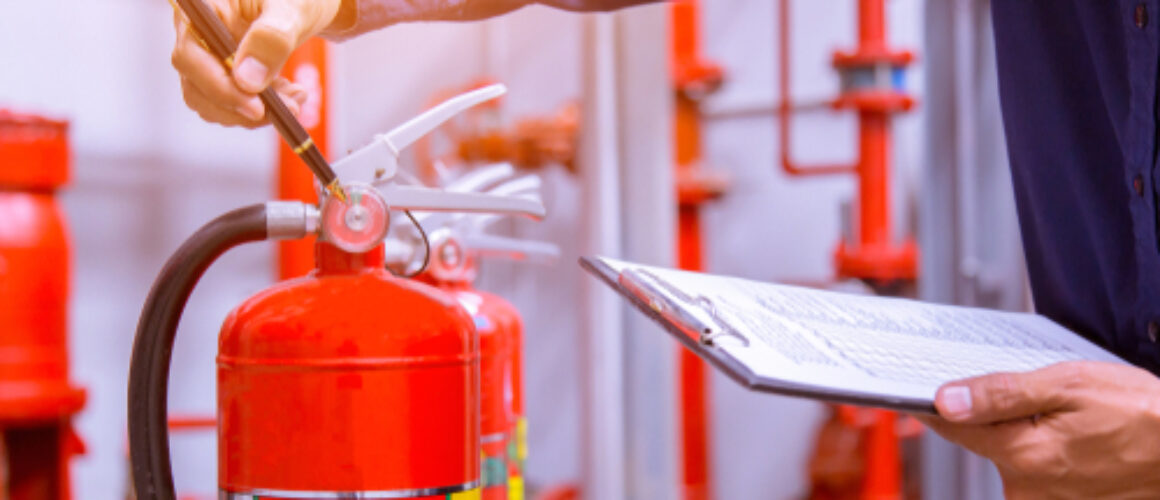Fire Prevention and Preparedness: Essential Steps for Every Household
Welcome to Electrical Discounted Supplies’ informative blog post on fire prevention and preparedness. In this article, we will discuss the importance of fire prevention, key measures you can take to protect your home, and essential tips for being prepared in case of a fire emergency. By implementing these steps, you can safeguard your family and property from potential hazards. Let’s dive in!
The Importance of Fire Prevention
Enforcement plays a crucial role in fire prevention. By strictly enforcing fire safety regulations and conducting regular inspections, authorities can ensure that buildings adhere to proper fire prevention measures. This includes checking for the presence and functionality of fire extinguishers, which are essential in quickly extinguishing small fires before they escalate into large-scale emergencies. Additionally, conducting thorough fire risk assessments allows individuals and organizations to identify potential hazards and take proactive steps to mitigate them effectively.
Effective fire prevention requires the installation of reliable AICO fire detection systems. These systems serve as an early warning mechanism, alerting occupants to the presence of smoke or heat indicative of a possible fire outbreak. By promptly notifying individuals about potential dangers, these detectors give people valuable time to evacuate safely or suppress the flames using appropriate firefighting equipment such as fire extinguishers. Investing in quality detection systems is a vital step towards protecting lives and property from devastating fires.
Understanding Fire Hazards
Common causes of residential fires include faulty electrical wiring, unattended cooking appliances, and smoking materials. It is important to regularly inspect your home for potential fire hazards such as overloaded power sockets, frayed wires, and flammable substances in close proximity to heat sources. Understanding the behaviour of different types of fires can help you select the appropriate fire extinguisher for each situation and enable you to act quickly in an emergency.
Identifying potential fire hazards in your home is crucial for ensuring the safety of yourself and your loved ones. Conducting a fire risk assessment can help identify areas that require attention, such as blocked escape routes or expired smoke alarms. Additionally, having accessible and properly maintained fire extinguishers throughout your home enhances your ability to effectively respond to a small-scale fire before it escalates into a larger threat.
Remember that prevention is key when it comes to maintaining household safety from fires. By being aware of common causes of residential fires, identifying potential hazards within your home through regular inspections and conducting a comprehensive fire risk assessment; as well as understanding the behaviour of different types of fires so you can choose the appropriate response measures swiftly – these steps will greatly contribute towards preventing devastating incidents from occurring in the first place!
Creating a Fire Safety Plan
Developing an evacuation plan for your family is essential in ensuring everyone’s safety during a fire emergency. Identify the safest exit routes from each room and establish a designated meeting point outside the house. Assign roles and responsibilities to each family member, such as who will grab the fire extinguishers or call emergency services. Regularly practice this plan to ensure its effectiveness.
As part of your fire safety plan, it is crucial to conduct a thorough fire risk assessment of your home. This assessment will help identify potential hazards and determine appropriate preventive measures. Additionally, consider installing fire detection systems like smoke alarms throughout your house for early detection and quick response in case of a fire outbreak.
Installing Fire Detection Systems
Choosing the right type of smoke detectors for your home is crucial for effective fire prevention. Opt for photoelectric smoke alarms, which are highly sensitive to smouldering fires and provide early detection. Proper placement and maintenance of smoke alarms is equally important; install them in every bedroom, outside sleeping areas, and on each level of your home. Regularly test the alarms and replace batteries annually to ensure they are functioning correctly. Additionally, consider enhancing your fire detection system by incorporating additional technologies such as heat detectors or carbon monoxide alarms.
When it comes to fire prevention, installing fire detection systems plays a vital role in safeguarding your household. Selecting suitable smoke detectors tailored to different areas within your home is essential—photoelectric smoke alarms are particularly effective at detecting smouldering fires early on. Place these devices strategically in bedrooms, outside sleeping areas, and on every floor of your house for comprehensive coverage. Remember to conduct routine testing and yearly battery replacements to keep the alarm system functioning optimally. Moreover, complement traditional smoke detectors with alternate technologies like heat detectors or carbon monoxide alarms for enhanced safety measures against potential fire risks
Fire Prevention Measures
Keeping Flammable Items Safely
Proper storage of flammable liquids is crucial to prevent fire hazards. Always store these items in approved containers and keep them away from any heat sources or open flames. Safe disposal of combustible materials is equally important. Make sure to dispose of old rags, papers, and other potentially flammable items in a designated waste container to minimize the risk of accidental fires. Additionally, clearing clutter and maintaining a tidy living space can significantly reduce the chances of ignition or spread if a fire does occur. Regularly declutter your home and ensure that there are no unnecessary flammable objects lying around that could fuel a fire.
Safe Use of Electrical Appliances
Regularly inspecting cords for damage is crucial to ensure the safe use of electrical appliances. Frayed or worn-out cords can pose a fire hazard, so it’s important to check them regularly and replace any damaged ones immediately. By taking this simple step, you can prevent potential accidents and protect your home from fire.
Avoiding overloading electrical outlets is another essential practice in fire prevention. Plugging too many devices into one outlet can overload the circuit and lead to overheating, sparking, or even a fire. To ensure safety, distribute your appliances across multiple outlets and use power strips with built-in surge protectors when necessary.
Unplugging appliances when not in use may seem like a small action but goes a long way in preventing fires. Leaving appliances plugged in unnecessarily increases the risk of short circuits or electrical malfunctions that could ignite a fire. Get into the habit of unplugging electronics such as chargers, hair dryers, and small kitchen gadgets when they’re not actively being used for added peace of mind.
Regular Maintenance of Electrical Systems
To ensure the safety and efficiency of your electrical systems, regular maintenance is crucial. By scheduling professional inspections, you can identify any potential wiring issues before they become a fire hazard. Additionally, replacing outdated or damaged electrical components will help prevent electrical fires and other accidents. Installing smoke detectors and carbon monoxide alarms throughout your home will provide early detection and warning in case of any emergencies.
Practising Good Kitchen Safety
Never leave cooking unattended on the stove. It only takes a few seconds for a small fire to turn into a dangerous situation. Stay vigilant and stay in the kitchen while you’re cooking.
Keep flammable objects away from heat sources. This includes dish towels, oven mitts, and any other materials that can catch fire easily. Be mindful of where you place these items to avoid accidents.
Use proper oven mitts and pot holders to prevent burns. When handling hot cookware or removing items from the oven, always use protective gear designed for high temperatures. Avoid using makeshift solutions like folded tea towels or cloth napkins, as they may not offer sufficient protection against burns.
Remember: Safety should always be your top priority in the kitchen!
Proper Candle Usage
Placing candles on stable, non-flammable surfaces is essential to prevent accidental fires. Avoid leaving candles unattended or near curtains and drapes, as they can quickly ignite and cause a fire hazard. To reduce the risk further, use candle snuffers instead of blowing them out.
Fire Preparedness Tips
- Create a detailed escape plan: Map out multiple exit routes from each room and ensure that all family members understand the plan. Practice regular fire drills to familiarize everyone with the procedure.
- Maintain functional fire extinguishers: Regularly check and refill fire extinguishers, ensuring they are easily accessible throughout your home. Train yourself on how to use them effectively in case of an emergency.
- Teach children about fire safety: Educate children on the dangers of playing with fire, how to safely handle matches or lighters, and what actions to take if they encounter a fire situation.
- Know when to call emergency services: Understand the signs that indicate a potentially uncontrollable blaze and know when it is necessary to contact emergency services for professional assistance.
Stay prepared for fires by creating escape plans, maintaining functional extinguishers, teaching children about safety, and knowing when to call for help.
Creating an Emergency Escape Plan
- Identify multiple exits in each room: Take the time to locate and mark all possible exit points in every room of your home. This ensures that you have alternative routes to escape in case one becomes blocked or unsafe during an emergency.
- Designate a meeting point outside the house: Choose a specific location outside your home where everyone will gather once they have safely escaped. This makes it easier for emergency responders to account for all family members and prevents anyone from re-entering the building unnecessarily.
- Practice the escape plan regularly: Make sure that everyone in your household understands their role and knows how to execute the escape plan efficiently. Regular drills not only reinforce proper procedures but also help reduce panic during emergencies, increasing everyone’s chances of getting out safely.
Maintaining Fire Extinguishers
Checking expiration dates and replacing when necessary is essential for maintaining fire extinguishers. Expired fire extinguishers may not function properly in an emergency situation, putting lives and property at risk. Proper storage and accessibility are also crucial to ensure that the fire extinguisher can be easily accessed during a fire incident. Additionally, it’s important to understand how to use different types of fire extinguishers effectively, as each type is designed to combat specific types of fires.
Teaching Fire Safety to Children
- Educating children about the importance of smoke alarms is crucial for fire prevention. Teaching them how to recognize the sound and purpose of a smoke alarm can save lives in emergency situations.
- Demonstrating the stop, drop, and roll technique is essential in teaching children what to do if their clothing catches fire. Practising this simple yet effective method helps them understand how to extinguish flames safely.
- Discussing potential fire hazards within the household allows children to identify risks and take necessary precautions. Engaging them in conversations about electrical appliances, open flames, or flammable materials promotes awareness and prevents accidents from occurring.
Knowing When to Call Emergency Services
Familiarize yourself with emergency numbers in your area, such as the local fire department or hotlines. This will ensure that you have the necessary information on hand when an emergency occurs. Additionally, be prepared to call emergency services immediately if you are unable to control a fire. Time is of the essence and calling for professional help can prevent further damage and potential harm. Lastly, when making the call, provide accurate information about your location so that help can arrive quickly and efficiently.
Conclusion
Taking steps to prevent fires is of utmost importance in ensuring the safety and well-being of your household. By implementing fire prevention strategies, such as regular inspections and maintenance of electrical systems, practising safe cooking habits, and keeping flammable materials away from heat sources, you can significantly reduce the risk of a devastating fire. Additionally, being prepared for emergencies by installing smoke detectors on every floor, creating a family emergency plan, and having fire extinguishers readily available can further enhance the safety measures in your home. Remember that safeguarding your loved ones should always be a top priority when it comes to fire prevention and preparedness.




